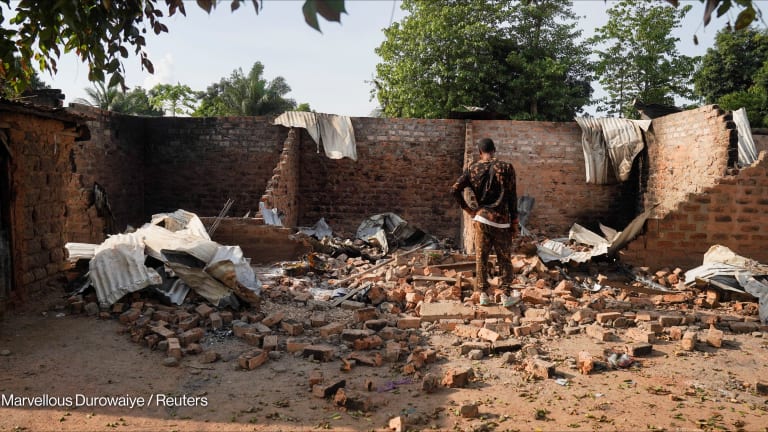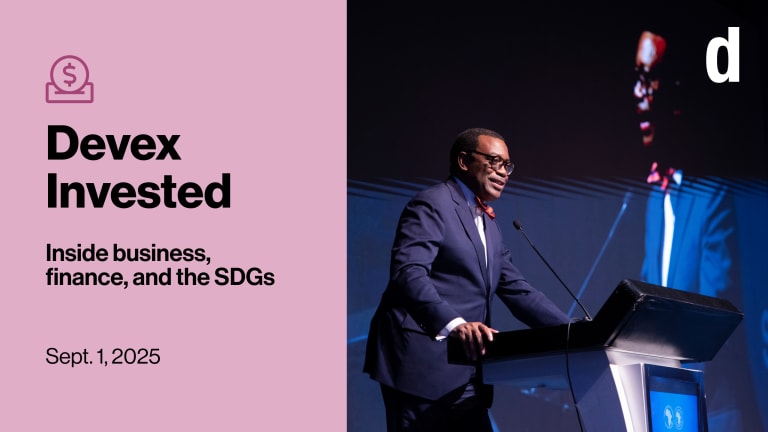
The Millennium Summit follow-up report of the U.N. secretary-general proclaims that “there can be no peace without development and no development without peace.”
The report also identifies effective governance based on the rule of law and sound institutions as both a key outcome and enabler under a sustainable development framework by linking economic growth, social justice and environmental stewardship into a post-2015 framework.
Numerous mentions of land and land-related priorities are contained in the report including: agriculture, distribution, degradation, use, farming, food, nutrition, forests, natural resource management, urbanization, rural areas, slums and small-holder farmers. It also observes that “conflicts and instability have halted or reversed progress in many countries.”
For the post-2015 period, the Overseas Development Institutereports that both old and new forms of development finance are demonstrating a congruence of interests around private sector, infrastructure, agriculture, climate change, health and growth.
Secure land rights are related to each of these interests, yet few donors include land rights in their assistance portfolios. Given the number of conflicts related to land and land-related issues, if peace and development are closely linked “enablers” of human security, then greater attention must be paid by donors to develop a comprehensive approach to examining and mitigating land-based conflicts.
A fascinating 2006 policy study on land rights and land conflicts in Africa by the Danish Institute for International Studies explored the vital importance of land issues to social and economic development, finding that land is a conflict-ridden resource and that disputes about land occur at all levels.
More recently, the Institute for Economics & Peace studied why conflict occurs and identified pillars of peace. Land and property rights, fall under both the pillars of a well-functioning government — effectiveness and the rule of law — and the equitable distribution of resources. The study explores peace drivers and finds that countries with better property rights tend to be more peaceful and that inequality in land ownership is associated with greater reductions in peace. Positive peace, the study notes, can be defined as “the attitudes, institutions and structures that, when strengthened, lead to a more peaceful society.”
The U.N. General Assembly’s new president on Sept. 17 provided a wonderful opportunity to further explore the link between land, human rights and the rule of law as part of a post-2015 sustainable development framework.
Due to the limited support by donors for land tenure and property rights efforts, many countries have been increasingly driving their own efforts to respond to local conflict. Countries such as India have made great progress strengthening land rights and developing modern land administration systems by budgeting $200 million to purchase homesteads for the poor and in the process, improved land tenure security and expanded their domestic tax revenue. As poor citizens slowly become taxpayers, there will be more scope for such initiatives to be funded domestically.
At the same time, the dedication of such funds by countries such as India should encourage the world donor community to more closely focus on the 4.5 billion of the world’s estimated 6 billion land parcels which are “held informally and are susceptible to disputes, land grabs, environmental degradation, food insecurity and social unrest.” An estimated 90 percent of the land in Africa falls into this category.
With support from the Bill & Melinda Gates Foundation, World Resources Institute and Landesa recently launched its Focus on Land in Africa website which focuses on both key land development themes and property rights issues to elevate land rights as an urgent priority for development and conflict mitigation in Africa. The site contains example after example of the interconnected nature of land rights and conflict.
If land and property rights are “enablers” and “pillars” of peace, greater emphasis and targeted funding must be placed on efforts to provide secure land rights to the world’s poor if we are to meet both our post-2015 challenges and contribute to conflict mitigation. The 2012 report on multilateral aid by the Organization for Economic Cooperation and Development reports that of the 55 percent of aid that goes to countries, 83 percent is disbursed to fragile and conflict-affected low-income countries. What if 50 percent of that aid were directed toward the attitudes, institutions and structures related to the rule of law, secure land tenure and property rights?
Want to know more? Check out Land Matters, a new campaign to showcase innovative solutions in the areas of food security, economic development, conservation and more.








